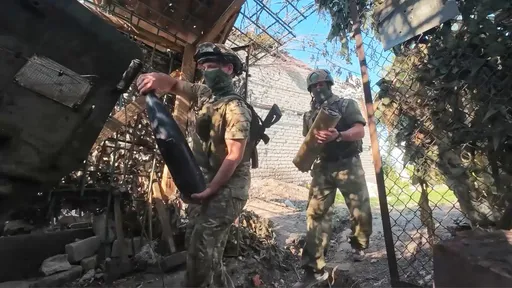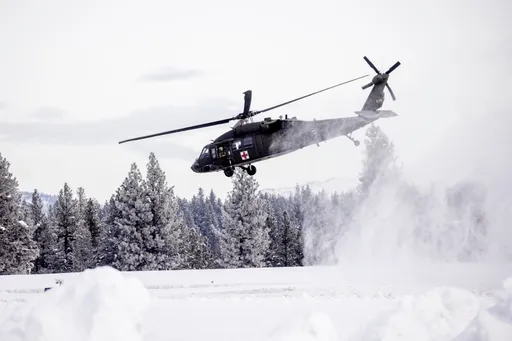The final phase of ending America's "forever war" in Afghanistan after 20 years formally has begun, with the withdrawal of the last US and NATO troops by the end of summer.
President Joe Biden had set May 1 as the official start of the withdrawal of the remaining forces — about 2,500-3,500 US troops and about 7,000 NATO soldiers.
Even before Saturday, the herculean task of packing up had begun.
The military has been taking inventory, deciding what is shipped back to the US, what is handed to the Afghan security forces and what is sold as junk in Afghanistan's markets.
In recent weeks, the military has been flying out equipment on massive C-17 cargo planes.
READ MORE:NATO begins withdrawal of mission forces from Afghanistan: official
Over $2 trillion spent in Afghanistan
The US is estimated to have spent more than $2 trillion in Afghanistan in the past two decades, according to the Costs of War project at Brown University, which documents the hidden costs of the US military engagement.
Defence department officials and diplomats told The Associated Press the withdrawal has involved closing smaller bases over the last year. They said that since Biden announced the end-of-summer withdrawal date in mid-April, only roughly 60 military personnel had left the country.
The US and its NATO allies went into Afghanistan together on October 7, 2001 to hunt the Al Qaeda perpetrators of the 9/11 terrorist attacks who lived under the protection of the country's Taliban rulers. Two months later, the Taliban had been defeated and Al Qaeda fighters and their leader, Osama bin Laden, were on the run.
In his withdrawal announcement last month, Biden said the initial mission was accomplished a decade ago when US Navy SEALS killed bin Laden in his hideout in neighbouring Pakistan.
Since then, Al Qaeda has been degraded, while the terrorist threat has “metastasised” into a global phenomenon that is not contained by keeping thousands of troops in one country, he said.
READ MORE:US orders big drawdown at Kabul embassy as troops leave Afghanistan
May 1 deadline
Until now the US and NATO have received no promises from the Taliban that they won't attack troops during the pullout. In a response to AP questions, Taliban spokesman Suhail Shaheen said the Taliban leadership was still mulling over its strategy.
The insurgent group continues to accuse Washington of breaching the deal it signed with Biden's predecessor more than a year ago. In that agreement, the US said it would have all troops out by May 1.
In a statement on Saturday, Taliban military spokesman Zabihullah Mujahid said the passing of the May 1 deadline for a complete withdrawal “opened the way for (Islamic Emirate of Afghanistan) mujahidin to take every counteraction it deems appropriate against the occupying forces.”
However, he said fighters on the battlefield will wait for a decision from the leadership before launching any attacks and that decision will be based on “the sovereignty, values and higher interests of the country."
READ MORE:Ghani offers to share power with Afghan Taliban
47,245 civilians killed since 2001
Violence has spiked in Afghanistan since the February 2020 deal was signed.
Peace talks between the Taliban and Afghan government, which were part of the agreement, quickly bogged down. On Friday, a truck bomb in eastern Logar province killed 21 people, many of them police and students.
READ MORE:Deadly blast hits Afghanistan’s Logar, underscores uptick in violence
Afghans have paid the highest price since 2001, with 47,245 civilians killed, according to the Costs of War project. Millions more have been displaced inside Afghanistan or have fled to Pakistan, Iran and Europe.
Afghanistan's security forces are expected to come under increasing pressure from the Taliban after the withdrawal if no peace agreement is reached in the interim, according to Afghan watchers.
Over 66,000 Afghan troops killed
Since the start of the war they have taken heavy losses, with estimates ranging from 66,000 to 69,000 Afghan troops killed. The Afghan military has been battered by corruption. The US and NATO pay $4 billion a year to sustain the force.
Some 300,000 Afghan troops are on the books, although the actual number is believed to be lower. Commanders have been found to inflate the numbers to collect pay checks of so-called “ghost soldiers,” according to the US watchdog monitoring Washington's spending in Afghanistan.
Last year was the only year US and NATO troops did not suffer a loss. The Defense Department says 2,442 US troops have been killed and 20,666 wounded since 2001. It is estimated that over 3,800 US private security contractors have been killed. The Pentagon does not track their deaths.
The conflict also has killed 1,144 personnel from NATO countries.
READ MORE:US withdrawal from Afghanistan is a pandora's box
Taliban in strong position?
The Taliban, meanwhile, are at their strongest since being ousted in 2001. While mapping their gains and territorial holds is difficult, they are believed to hold sway or outright control over nearly half of Afghanistan.
“We are telling the departing Americans ... you fought a meaningless war and paid a cost for that and we also offered huge sacrifices for our liberation,” Shaheen told the AP on Friday.
Striking a more conciliatory tone, he added: “If you ... open a new chapter of helping Afghans in reconstruction and rehabilitation of the country, the Afghans will appreciate that.”
In announcing the departure, Biden said waiting for ideal conditions to leave would consign America to an indefinite stay.
In the Afghan capital and throughout the country, there is a growing fear that chaos will follow the departure of the last foreign troops.
After billions of dollars and decades of war, many Afghans wonder at whether it was worth it.
READ MORE:After decades of war, Afghanistan’s drug trade booms like never before























